TOP KNEE SPECIALIST IN PORTLAND
Common knee sports surgeries include anterior cruciate ligament (ACL) reconstruction and meniscus repair. ACL reconstruction is often necessary when the ACL, a key ligament for knee stability, is torn during activities involving sudden stops, jumps, or changes in direction. The procedure typically involves replacing the torn ligament with a graft, which can be taken from the patient's own body (autograft) or from a donor (allograft), but newer cutting-edge techniques like the Bridge-Enhanced ACL Repair (BEAR) is showing great promise in saving the native ACL. Recovery involves extensive rehabilitation to restore knee function and strength.
Meniscus repair, on the other hand, addresses tears in the meniscus, the cartilage that cushions the knee joint. Depending on the tear's location and severity, the surgery might involve stitching the torn pieces together (meniscus repair) or removing the damaged parts (meniscectomy). Meniscus surgeries aim to alleviate pain, restore knee function, and prevent long-term joint damage. Recovery times vary, with meniscus repair generally requiring a longer rehabilitation period compared to meniscectomy.
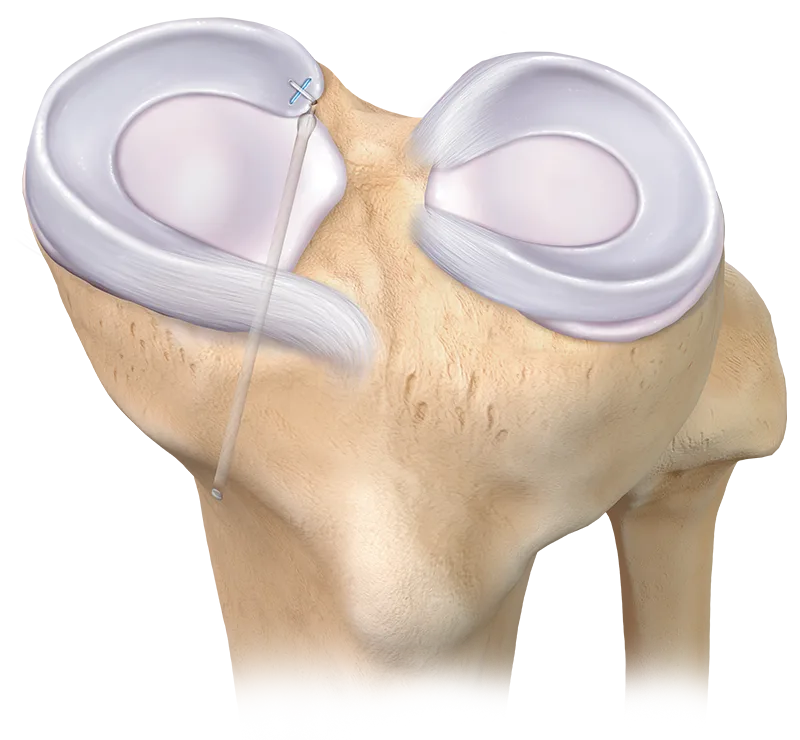
Cutting-Edge BEAR ACL Repair
Bridge-Enhanced ACL Repair (BEAR) is an innovative approach to ACL reconstruction that uses a special scaffold to promote the body's natural healing of the torn ligament, rather than replacing it with a graft as in traditional methods. This technique involves placing a sponge-like scaffold filled with the patient's blood between the torn ends of the ACL, encouraging the ligament to heal itself. BEAR has shown great promise in preserving the native ACL structure including the nerve endings in the ACL, which may result in better knee function and a more natural movement post-surgery. Additionally, it avoids the need for graft harvesting, potentially reducing unwanted donor site effects and leading to faster, less painful recovery compared to traditional ACL reconstruction.
PORTLAND’S TOP KNEE ARTHROSCOPY EXPERT
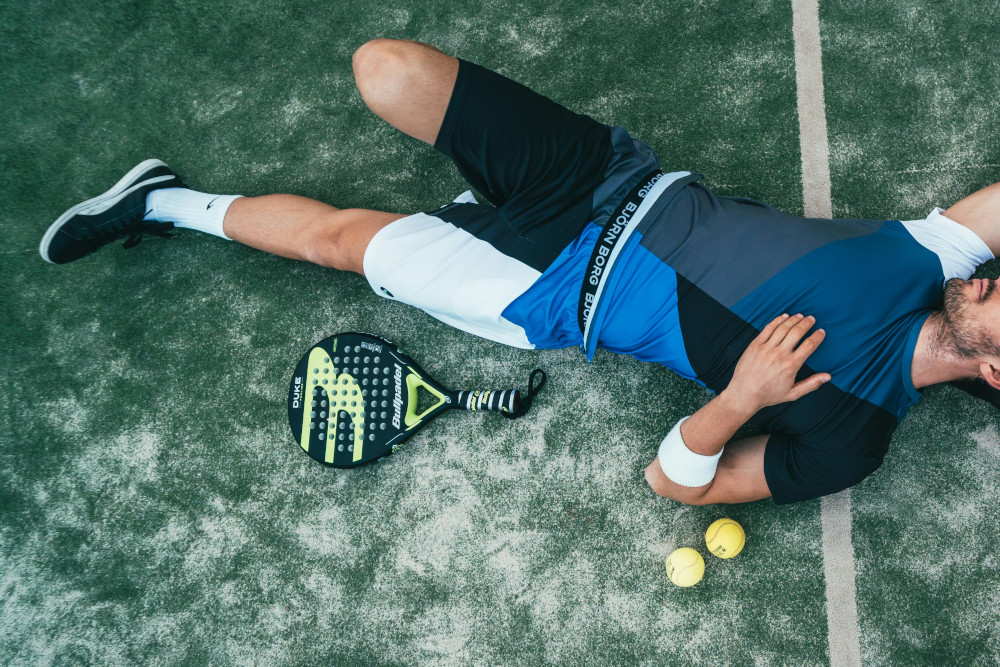
Articular cartilage, meniscus, and ACL injuries can drastically diminish your knee's functionality, causing persistent pain, swelling, and instability that hinder daily activities and athletic pursuits. Damage to the articular cartilage can lead to joint degeneration and arthritis, while meniscus tears and ACL ruptures compromise knee stability and movement. Without timely surgical intervention, these injuries can worsen, resulting in chronic pain and further joint damage. Consulting a surgeon ensures an accurate diagnosis and access to cutting-edge treatments that can repair or reconstruct damaged tissues, restore knee function, and prevent long-term complications. With high success rates and tailored rehabilitation programs, surgical solutions can significantly enhance your mobility, reduce pain, and expedite your return to an active, fulfilling life. Seeking surgical expertise early is crucial for optimal recovery and long-term joint health.
EXPERT LIGAMENT REPAIR AND RECONSTRUCTION SPECIALIST
Collateral ligament injuries, involving the medial collateral ligament (MCL) or lateral collateral ligament (LCL), can severely impair knee stability, leading to pain, swelling, and difficulty in walking or bearing weight. These injuries are often the result of sudden impact or twisting motions and can leave the knee vulnerable to further damage if not properly treated. Consulting a surgeon promptly ensures a precise diagnosis and access to advanced treatments that can repair or reconstruct the damaged ligaments, restoring knee stability and function. Surgical intervention, combined with a comprehensive rehabilitation plan, can significantly improve recovery outcomes, alleviate pain, and prevent long-term complications such as chronic instability or arthritis. Early surgical consultation is essential to regain full knee strength, maintain an active lifestyle, and avoid further injury.
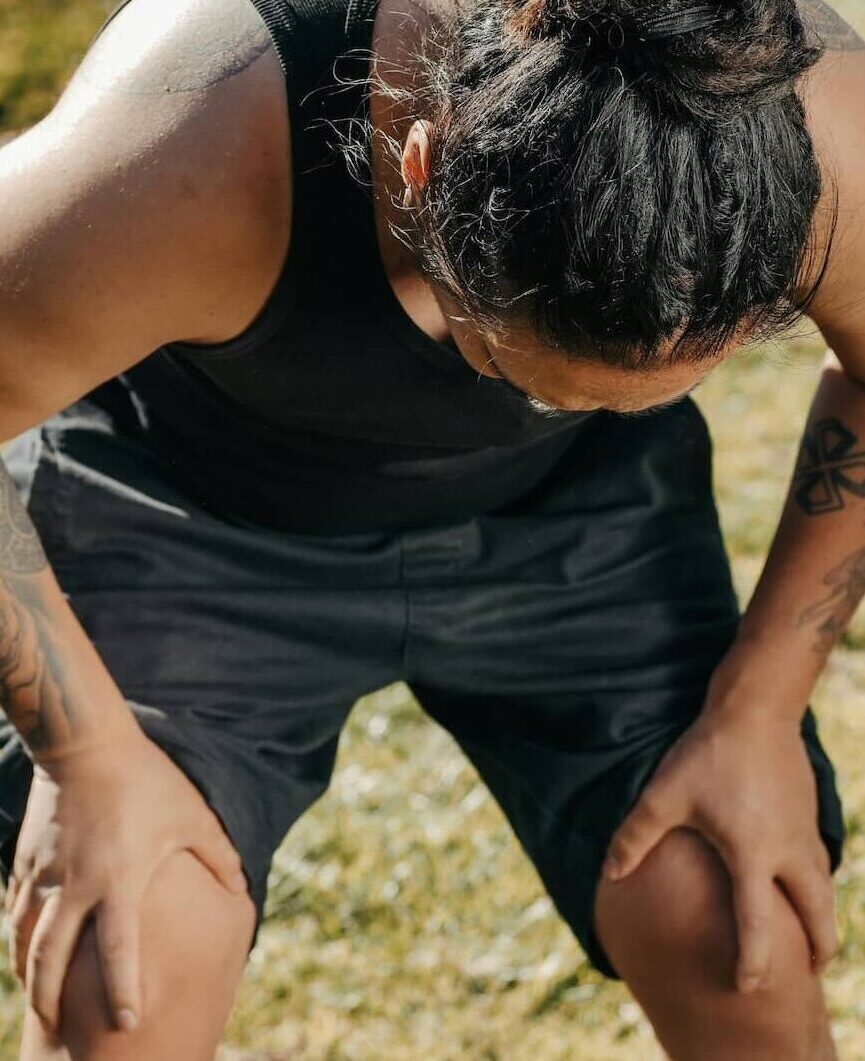
REGENERATIVE MEDICINE SPECIALIST
Groundbreaking regenerative medicine options for knee pain are revolutionizing the way we treat joint injuries and degenerative conditions. Treatments such as platelet-rich plasma (PRP) therapy, bone marrow aspirate concentrate and microfragmented adipose tissue therapy harness the body's own healing capabilities to repair damaged tissues, reduce inflammation, and support regeneration. These minimally invasive treatments offer the potential for faster recovery, reduced pain, and improved joint function without the need for major surgery. By focusing on healing and regeneration at the cellular level, regenerative medicine provides a promising alternative for patients seeking to manage knee pain and restore their mobility.
As an expert of the full spectrum of musculoskeletal care, Dr. Shipley can guide the patient through all phases of the disease. Many patients are surprised to hear that Dr. Shipley emphasizes non-surgical treatment if surgery can be avoided.
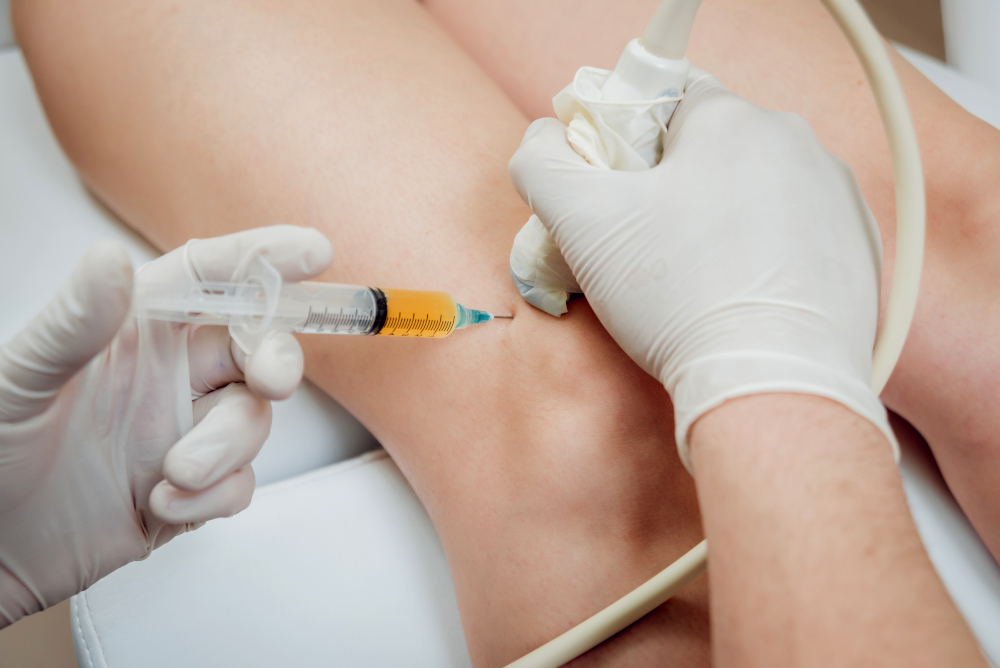
Knee Q&A
FREQUENTLY ASKED QUESTIONS
What are the common symptoms of a serious knee injury?
Patients often want to know how to differentiate between a minor issue and something that requires medical attention.
What are the treatment options for my specific knee condition?
Understanding the range of available treatments, from conservative approaches like physical therapy to surgical interventions, helps patients make informed decisions.
How long will it take to recover from knee surgery?
Recovery time is a major concern, especially for athletes or individuals with active lifestyles who want to know when they can return to their normal activities.
What are the risks and potential complications associated with knee surgery?
Patients need to be aware of any possible risks or complications that might arise from surgical procedures to weigh the benefits against the risks.
Can regenerative medicine or non-surgical treatments help with my knee condition?
With advancements in medical treatments, patients are increasingly interested in exploring non-invasive options like PRP or stem cell therapy for managing knee pain and injuries.
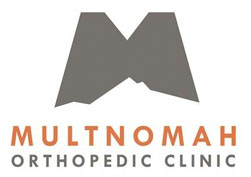
Make an appointment:
Multnomah Orthopedic Clinic
5050 NE Hoyt Street, #626
Portland, Oregon 97213
T: 503.231.1426
F: 503.231.0316
multnomahortho.com
BOOK AN APPOINTMENT









